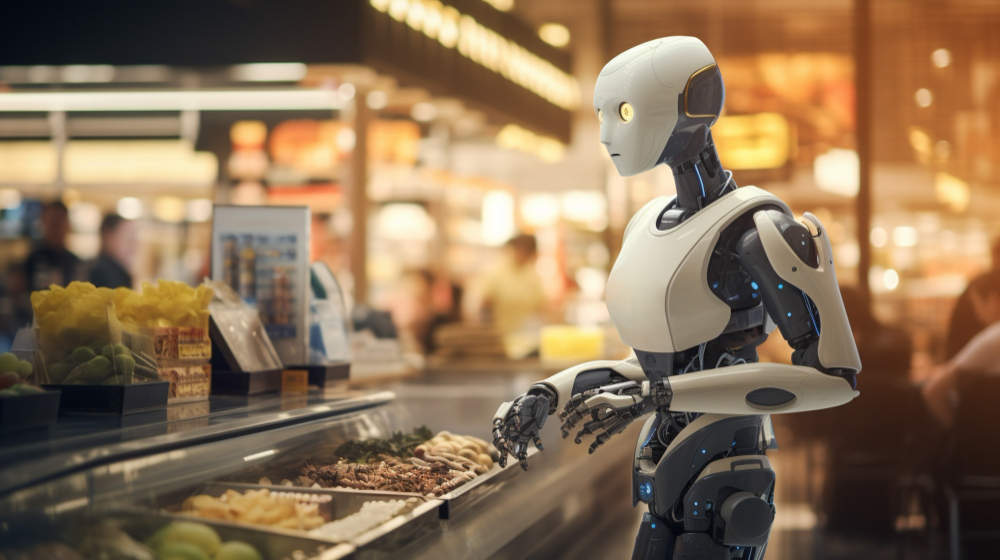Introduction
The retail industry is undergoing a rapid transformation, driven by technological advancements. Today, custom retail software development plays a vital role in enabling retailers to meet evolving consumer demands. Among the key technologies shaping this transformation are Artificial Intelligence (AI) and Machine Learning (ML). These tools are empowering businesses to deliver personalized shopping experiences, improve operational efficiency, and streamline decision-making processes. Additionally, the integration of IoT in retail further enhances these capabilities, creating a seamless digital ecosystem.
This article delves into the impact of AI and ML on custom retail software, exploring their role in automating tasks, driving customer insights, and supporting smarter retail operations.
AI and Machine Learning in Retail Software: An Overview
AI and ML are no longer emerging technologies but essential tools in retail. AI focuses on automating processes by simulating human intelligence, while ML enables systems to learn from data patterns and improve over time without explicit programming. When integrated into custom retail software development, these technologies offer businesses unique solutions tailored to their specific requirements.
From recommendation engines and dynamic pricing tools to predictive analytics and automated inventory management, AI and ML are redefining the retail landscape.
Key Applications of AI and ML in Custom Retail Software
1. Personalized Customer Experience
One of the primary drivers of AI-powered retail software is the ability to deliver personalized shopping experiences. AI analyzes vast amounts of data from customer behavior, past purchases, browsing history, and even social media activity to tailor product recommendations.
- Recommendation Engines: ML algorithms create real-time suggestions for products customers are likely to purchase, improving conversion rates.
- Chatbots and Virtual Assistants: Retailers deploy AI-driven chatbots to engage with customers, answer inquiries, and recommend products, creating a personalized shopping journey.
The impact of personalization is profound, as it not only increases customer satisfaction but also fosters brand loyalty.
2. Demand Forecasting and Inventory Management
Efficient inventory management is crucial for retail businesses, and AI-powered tools are helping automate this process.
- Predictive Analytics: ML models analyze historical sales data, seasonal trends, and external factors like weather to predict demand more accurately.
- Automated Stock Replenishment: By predicting when items are likely to run out, AI systems ensure timely restocking, reducing the chances of overstocking or understocking.
Custom retail software integrated with AI and ML can optimize inventory levels, helping retailers avoid costly stockouts and improve operational efficiency.
The Role of IoT in Retail Software
IoT in retail adds another layer of intelligence to retail operations by connecting physical assets and devices to the cloud. When IoT technology integrates with custom retail software development, it offers real-time data that enables more informed decision-making.
1. Smart Shelves and Sensors
IoT-enabled smart shelves monitor product levels on the retail floor and send alerts when replenishment is required. These systems also provide insights into product movement and customer interaction patterns.
2. Automated Checkout Systems
IoT solutions such as Amazon Go’s cashier-less stores leverage a combination of AI, ML, and IoT sensors. These systems track customer purchases and allow them to leave the store without waiting in line, enhancing the overall shopping experience.
How AI and ML Drive Operational Efficiency
1. Dynamic Pricing Models
AI-driven software enables dynamic pricing strategies by analyzing factors such as competitor prices, customer behavior, and market trends. Retailers can adjust prices in real time to stay competitive while maximizing profit margins.
- ML Algorithms for Pricing Optimization: These algorithms predict optimal prices based on demand patterns, helping businesses capture more value from customers.
- Personalized Discounts and Offers: AI identifies high-value customers and offers tailored discounts to incentivize purchases.
2. Fraud Detection and Security
AI-powered systems can also detect fraudulent activities by identifying abnormal patterns in transactions and preventing unauthorized access to accounts. ML models continuously improve by learning from previous incidents, making fraud detection more effective over time.
Enhancing Customer Engagement with AI
AI and ML-based tools help retailers engage with customers more effectively, both online and offline.
- Sentiment Analysis: AI software analyzes customer reviews, feedback, and social media posts to understand customer sentiment. This allows retailers to respond to negative feedback proactively and improve brand reputation.
- Targeted Marketing Campaigns: By analyzing customer data, AI identifies specific segments that are more likely to respond to promotions, helping businesses focus their marketing efforts where they matter most.
Challenges in Implementing AI and ML in Custom Retail Software
While AI and ML offer significant benefits, their implementation in custom retail software development comes with challenges:
- Data Quality and Availability: AI and ML rely heavily on data, and poor data quality can impact performance. Retailers must ensure they collect accurate and relevant data.
- Integration with Legacy Systems: Many retailers operate on outdated systems, making it challenging to integrate new technologies. Custom solutions must address these compatibility issues.
- Cost of Development and Maintenance: Developing AI-powered software is resource-intensive. Retailers need to balance the cost of implementation with expected benefits.
- Customer Data Privacy: With growing concerns about data privacy, retailers must ensure compliance with regulations like GDPR and CCPA when leveraging AI and ML.
Future Trends in AI and IoT-Powered Retail Software
The future of custom retail software development will be driven by a deeper integration of AI, ML, and IoT technologies.
- Augmented Reality (AR) and Virtual Reality (VR): AI-powered AR/VR tools will allow customers to try products virtually before purchasing.
- Voice Commerce: With the rise of virtual assistants, voice-activated shopping experiences will become more common.
- Edge AI in IoT Devices: AI models running on IoT devices at the edge will enable real-time decision-making without relying on cloud infrastructure.
As these technologies evolve, retailers will continue to unlock new opportunities for growth and innovation, cementing AI and ML as cornerstones of future retail operations.
Conclusion
The role of AI and ML in custom retail software development is transformative, enabling businesses to meet the growing demands of modern consumers. From personalized recommendations to predictive analytics and automated inventory management, AI-powered solutions improve every aspect of retail operations. Furthermore, the integration of IoT in retail enhances real-time decision-making, creating seamless and efficient shopping experiences.
Despite the challenges, the benefits of adopting AI and ML outweigh the difficulties, providing a clear competitive advantage. As AI, ML, and IoT technologies continue to mature, retailers who embrace these innovations will be better positioned to thrive in a fast-evolving marketplace.



